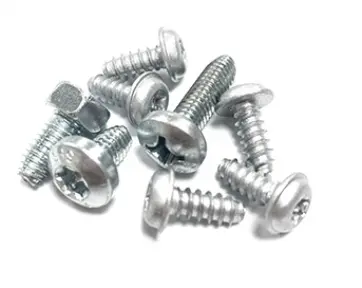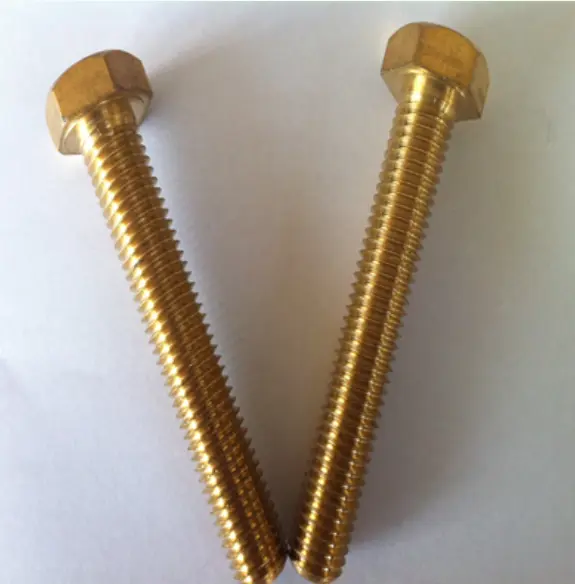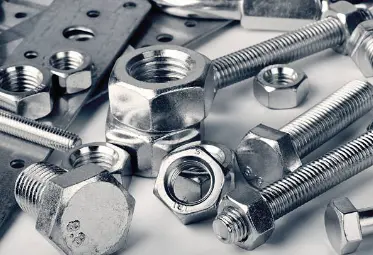caTEGORIES
Tags
Set Screws Material Properties: Key Factors Affecting Performance

Posted: October 31, 2024
Categories: News
When it comes to set screws, selecting the right material is critical for maximizing performance and ensuring durability. The two most common materials used for set screws are carbon steel and stainless steel.
Carbon Steel
Carbon steel is renowned for its strength and affordability. It contains a significant amount of carbon, which contributes to its hardness and tensile strength. However, its susceptibility to rust and corrosion can be a drawback in certain applications. Therefore, carbon steel set screws are often treated with coatings or finishes to enhance corrosion resistance. If you require carbon steel set screws for your project, you may want to explore Qweit for a variety of options or to contact us for specific inquiries.
Stainless Steel
Stainless steel is another popular material choice for set screws, especially for applications requiring corrosion resistance. Alloys like Type 304 and Type 316 stainless steel offer varying degrees of resistance to rust and oxidation. The trade-off with stainless steel is often reduced tensile strength compared to carbon steel. However, its durability in harsh environments makes it an ideal choice, particularly in industries like marine, chemical, and food processing.
What Role Does Heat Treatment Play in Set Screw Performance?
Heat treatment is pivotal in enhancing the performance of set screws. By altering their microstructure, manufacturers can achieve desired mechanical properties such as hardness and toughness.
Types of Heat Treatment Processes
Several heat treatment processes are commonly employed, including quenching, tempering, and annealing. Quenching involves rapidly cooling hot metal to harden it, while tempering follows to reduce brittleness. Annealing, on the other hand, softens the metal, enhancing its machinability. Each of these processes offers unique benefits that can be tailored to specific set screw applications.
Effects on Material Characteristics
The effects of heat treatment on set screw materials can significantly influence their behavior under load. For instance, a properly tempered set screw can endure high stress without deforming, making it ideal for critical fastening applications. The knowledge of these processes can assist you in selecting the appropriate treatment for your set screw requirements, thereby enhancing performance and reliability.
How to Choose Specialty Materials for Set Screws?
Choosing specialty materials for set screws involves a thorough assessment of the application’s demands. Factors such as load-bearing capacity, environmental conditions, and resistance to wear should inform your decisions.
Brass Set Screws
Brass set screws are often selected for their excellent corrosion resistance and aesthetic appeal. The inherent properties of brass make it suitable for light-duty applications where traditional steel set screws might corrode. Additionally, brass offers good electrical conductivity, making it a popular choice in electrical applications. If you are considering brass options, be sure to review our Brass Hexagon Set Screws DIN 933 for high-quality choices.

Alloy Steels
Alloy steels, which combine carbon steel with other elements like chromium, molybdenum, or nickel, are used when elevated strength, toughness, and wear resistance are critical. These steels are ideal for heavy-duty applications where performance under extreme conditions is necessary. With their improved mechanical properties, alloy steels can often outperform traditional materials in challenging environments.
In conclusion, the selection of materials, the importance of heat treatment, and the choice of specialty materials are key factors in the performance of set screws. Understanding these aspects will help ensure you make informed decisions tailored to your application’s specific needs. For sourcing high-quality set screws and consultation, explore the offerings at Qweit or contact us for more information.
How Do Material Properties Affect the Performance of Set Screws?
Material properties play a vital role in the performance of set screws, influencing their longevity and functionality in various applications. Different materials exhibit unique characteristics that can either enhance or hinder a set screw’s performance under stress, environmental exposure, and mechanical demands.
Corrosion Resistance
Corrosion resistance is an essential quality for maintaining the integrity of set screws, especially in environments prone to moisture or chemical exposure. Stainless steel set screws, particularly those made from Type 304 or Type 316 alloys, offer superior corrosion resistance due to their chromium and nickel content. This resistance is crucial for applications in marine, chemical processing, or humid environments, where corrosion could lead to equipment failure or fastening loosening over time.
In contrast, carbon steel set screws may corrode if not adequately coated or treated. For this reason, applying protective coatings or using stainless steel in corrosive conditions is advisable. Reinforcing your choice with high-quality materials will ensure that your set screws withstand challenging environments.
Tensile Strength and Shear Factor
The tensile strength and shear factor are critical indicators of a material’s capability to withstand forces without failing. Set screws are often subjected to tension and shear loads, which can lead to failure if the material’s strength is insufficient. Carbon steel set screws generally exhibit higher tensile strength compared to their stainless steel counterparts, making them suitable for high-load applications.
The design of the set screw also influences its performance under load. A proper thread form, along with the right dimensions, will maximize contact area and distribute loads evenly, minimizing the risk of shear failure. Recognizing these factors enables you to select the right set screw for specific applications and ensure reliable fastening solutions.
Where Can You Find High-quality Set Screws?
When searching for high-quality set screws, considering where to source them is integral to the selection process. Opting for reputable suppliers ensures that you receive dependable products that meet industry standards.
Qweit: Trusted Brand
Qweit is recognized as a trusted brand in the fastener industry, offering an extensive range of set screws tailored to diverse application needs. Their commitment to quality means you can rely on the performance and consistency of their fasteners. By choosing products from Qweit, you are investing in set screws that have been manufactured with precision and undergone rigorous quality control processes.
To explore the array of options available, including specialty products like the Brass Hexagon Set Screws DIN 933, visit their online catalog and see the benefits that come with choosing a reputable provider. Should you have specific inquiries or require assistance in selecting the right set screws for your project, do not hesitate to contact us for personalized support.
Additionally, sourcing from a trusted supplier like Qweit ensures that you benefit from not only high-quality products but also expert guidance on material choices and applications. With such resources at your fingertips, you can make informed decisions that enhance your projects’ outcomes.
In conclusion, material properties significantly impact the performance and reliability of set screws. Factors like corrosion resistance and tensile strength must be carefully considered when selecting the right fasteners for your applications. By partnering with reputable suppliers such as Qweit and exploring their comprehensive offerings, you can ensure that your projects are completed with the highest quality standards in mind.



